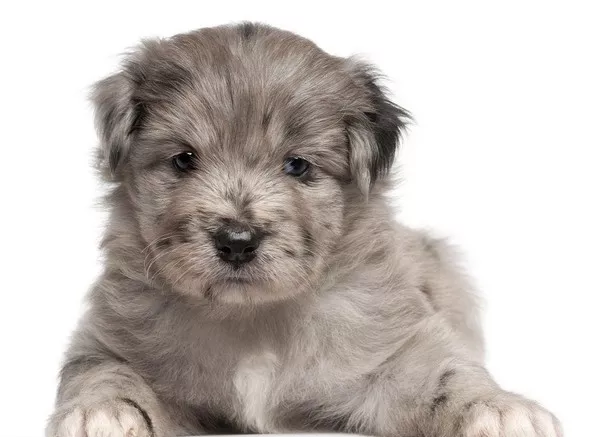Cats, including the popular American Shorthair breed, have unique dietary needs. As cat owners, it’s essential to understand which foods are safe and beneficial for your furry friends. One common question that arises is whether it’s safe for an American Shorthair cat to eat scrambled eggs. In this comprehensive guide, we will explore the nutritional value of eggs, the specific dietary requirements of the American Shorthair breed, and whether scrambled eggs can be a healthy addition to your cat’s diet.
1. Understanding the American Shorthair Breed
Before diving into whether scrambled eggs are safe for your American Shorthair, it’s important to understand a little more about the breed itself. The American Shorthair is a beloved and versatile breed known for its friendly nature and easy-going temperament. These cats have a muscular build and a short, dense coat that is low-maintenance. They are also known for being intelligent, independent, and affectionate, making them great companions.
American Shorthairs are not particularly prone to specific dietary issues, but like all cats, they have specific nutritional needs. Their bodies require a diet rich in animal protein, fat, and certain vitamins and minerals. Understanding these needs will help us determine if scrambled eggs can fit into their diet.
2. The Nutritional Profile of Eggs
Eggs are a rich source of protein, essential amino acids, vitamins, and minerals. Let’s take a closer look at the nutrients found in eggs that might be relevant for your American Shorthair:
Protein: Eggs are an excellent source of high-quality protein, which is essential for muscle growth, tissue repair, and overall health. Protein makes up a large part of a cat’s diet, as they are obligate carnivores, meaning their bodies are designed to get most of their nutrition from animal sources.
Fat: Eggs contain healthy fats that provide energy and help with the absorption of fat-soluble vitamins. These fats are important for maintaining healthy skin, coat, and cellular function.
Vitamins: Eggs are rich in several vitamins, including vitamin A, vitamin D, and various B vitamins like B12 and riboflavin. These vitamins support immune function, vision, skin health, and overall metabolic function.
Minerals: Eggs provide minerals like iron, selenium, and zinc, which are vital for maintaining healthy red blood cells, immune function, and tissue repair.
While these nutrients are important for both humans and animals, it’s essential to recognize that cats have different digestive systems and nutritional needs than humans. Thus, while eggs are nutritionally rich, they should be served in moderation and in a way that is appropriate for your cat.
3. Is It Safe for American Shorthairs to Eat Scrambled Eggs?
Now that we understand the basic nutritional profile of eggs, the question remains: Is it safe for American Shorthair cats to eat scrambled eggs?
The short answer is yes, but with caution.
Potential Benefits of Scrambled Eggs for American Shorthairs:
High-Quality Protein Source: Scrambled eggs are a good source of protein for your cat, which supports muscle growth and overall health.
Healthy Fats: The fats found in scrambled eggs are beneficial for your cat’s coat and skin health. They help maintain a shiny coat and may prevent dry skin.
Additional Nutrients: Eggs provide various vitamins and minerals that contribute to a balanced diet. For example, the vitamin A in eggs is important for eye health, while vitamin D supports bone health.
However, not all cats will benefit equally from scrambled eggs. There are several factors to consider when offering eggs to your American Shorthair.
4. Key Considerations When Feeding Scrambled Eggs to Your Cat
Portion Control
While eggs are healthy, they should only be fed to your cat in moderation. Too much egg can upset your cat’s digestive system or lead to imbalances in their diet. Cats are obligate carnivores, meaning their primary source of protein should come from animal-based meat, not eggs. Eggs can be seen as an occasional treat, not a primary food source.
No Added Ingredients
When preparing scrambled eggs for your American Shorthair, avoid adding ingredients like salt, butter, milk, or spices. Many of these ingredients can be harmful to cats. Salt can lead to sodium toxicity, and butter and milk are difficult for many cats to digest. Additionally, spices like garlic and onion are toxic to cats and should never be included in their food.
Cooking Method
It’s important to cook the eggs thoroughly before offering them to your cat. Raw eggs pose the risk of Salmonella infection or the potential for an imbalance in biotin (a vitamin that raw egg whites can deplete). Cooking the eggs ensures that they are safe to eat and that your cat will absorb all the nutrients effectively. Overcooking eggs, however, may cause the protein to become too tough, making it harder for your cat to digest.
Monitor for Allergies or Sensitivities
Some cats may have allergies or sensitivities to eggs. If it’s your cat’s first time eating eggs, offer only a small amount and monitor for any adverse reactions. Symptoms of food allergies in cats can include vomiting, diarrhea, or skin irritations. If you notice any of these signs, discontinue feeding eggs and consult your veterinarian.
Eggs Should Complement a Balanced Diet
Eggs should never replace a balanced, nutritionally complete cat food. Your American Shorthair’s primary source of nutrition should come from high-quality commercial cat food designed to meet all of their dietary requirements. Scrambled eggs can be an occasional treat, but not a substitute for regular meals.
5. The Risks of Feeding Scrambled Eggs to Cats
While scrambled eggs can offer some benefits, there are also risks to consider. Here are a few:
Potential Digestive Upset: Introducing new foods like scrambled eggs into your cat’s diet can lead to digestive upset, especially if they are not accustomed to it. Common signs of gastrointestinal distress in cats include vomiting, diarrhea, or a lack of appetite.
Obesity: Eggs are calorie-dense, so feeding your cat too many eggs can contribute to weight gain if not carefully monitored. Cats are prone to obesity, and excess treats can add up over time. Always remember that treats like scrambled eggs should make up no more than 10% of your cat’s daily caloric intake.
Nutrient Imbalance: While eggs provide many essential nutrients, they do not contain all the nutrients that cats need for optimal health. Over-reliance on scrambled eggs could lead to nutrient imbalances or deficiencies.
6. How Often Can You Feed Scrambled Eggs to Your American Shorthair?
Given that eggs are a nutrient-rich but calorie-dense food, they should be fed to your cat in moderation. For most cats, it’s safe to offer scrambled eggs as an occasional treat. A small serving (about one teaspoon) once a week should suffice. You can gradually increase the amount if your cat enjoys eggs and shows no signs of digestive issues or allergies.
As with any treat, it’s important to balance your cat’s overall diet. Ensure that the bulk of their nutrition comes from a high-quality, complete cat food. Scrambled eggs should not replace their primary meals, but rather serve as an occasional indulgence.
7. Alternatives to Scrambled Eggs for American Shorthair Cats
If your American Shorthair is particularly fond of scrambled eggs, you can consider offering other types of animal-based protein as treats. Some alternatives include:
Cooked Chicken: Boneless, skinless chicken is a great protein source for cats and can be easily cooked and shredded.
Cooked Turkey: Like chicken, turkey is another lean protein source that cats often enjoy.
Canned Tuna: Tuna in water (not oil) can be a tasty treat for cats, though it should only be given occasionally due to the potential for mercury buildup.
Freeze-Dried Meat Treats: These treats are convenient and can be a healthy addition to your cat’s diet. They’re often made from pure meat, with no additives or preservatives.
Remember, no matter what treat you give your cat, it should always complement a balanced diet and not replace regular cat food.
Conclusion
Scrambled eggs can be a tasty and nutritious treat for your American Shorthair, but they should be fed in moderation and with caution. Eggs are an excellent source of protein and other essential nutrients, but they should never replace a complete, balanced cat food. Always cook the eggs thoroughly, avoid adding any harmful ingredients, and be mindful of portion sizes.
If your cat shows any signs of digestive upset or allergies, discontinue feeding eggs and consult your veterinarian. Eggs should be considered an occasional treat and not a staple in your cat’s diet.
As with any dietary change or addition, it’s always a good idea to discuss your cat’s nutrition with your veterinarian, especially if you are unsure about the best food choices for your American Shorthair.
By providing a balanced diet and the occasional treat, you’ll help ensure that your American Shorthair remains healthy, happy, and thriving for years to come.
Related Topics:























